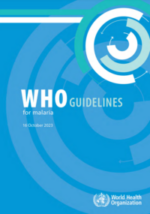DEEP DIVE
Reactive strategies
31/03/2021
21/03/2024
This is an active Deep Dive and we welcome your contributions! If you are currently involved or planning research activities on Reactive strategies please contact MESA (mesa@isglobal.org) or add your project to the database.
——
There is a growing body of research around activities taken in response to the identification of a new malaria case to reduce or interrupt transmission. These actions are commonly referred to as ‘reactive strategies’ as they are triggered when and where there is a recently confirmed case of malaria (index case). Reactive interventions operate under the assumption that a new infection identified through passive or active case detection (PCD or ACD) can lead back to a cluster of cases.
The WHO Global Malaria Programme is currently developing new Guidelines for Malaria Elimination to provide policy advice to countries and plans to incorporate evidence-based recommendations on the use and implementation of different interventions. In particular, three reactive strategies aimed at reducing malaria transmission will be reviewed:
- Reactive case detection (RACD): Testing and treating if positive the sub-population living with/near to a recently confirmed case or who may have experienced the same exposure (e.g. co-travellers, co-workers).
- Reactive drug administration (RDA): Administration of a full therapeutic course of antimalarial medicine to a sub-population living with/near to a recently confirmed case, regardless of symptoms and without testing.
- Reactive indoor residual spraying (RIRS): Application of a residual insecticide to the walls of households of/near an index case.
With the aim of facilitating the work of the Malaria Elimination Guidelines Development Group, this deep dive compiles the landscape of recent and ongoing research in ‘reactive strategies’ and provides an overview of the projects’ main characteristics.

Total
projects

Total funding
amount


